Student Wellbeing
Wellbeing
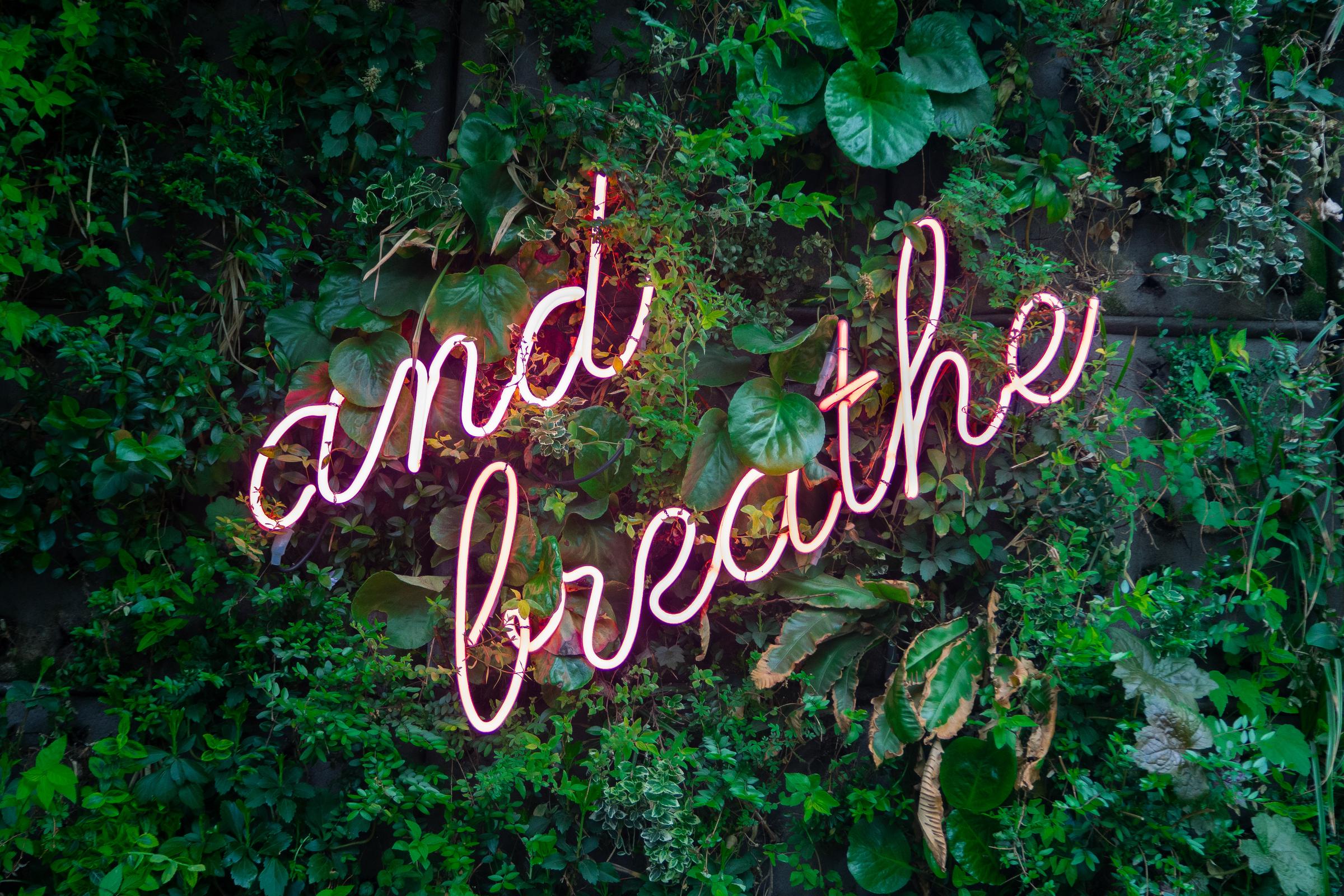
Student Wellbeing
Wellbeing
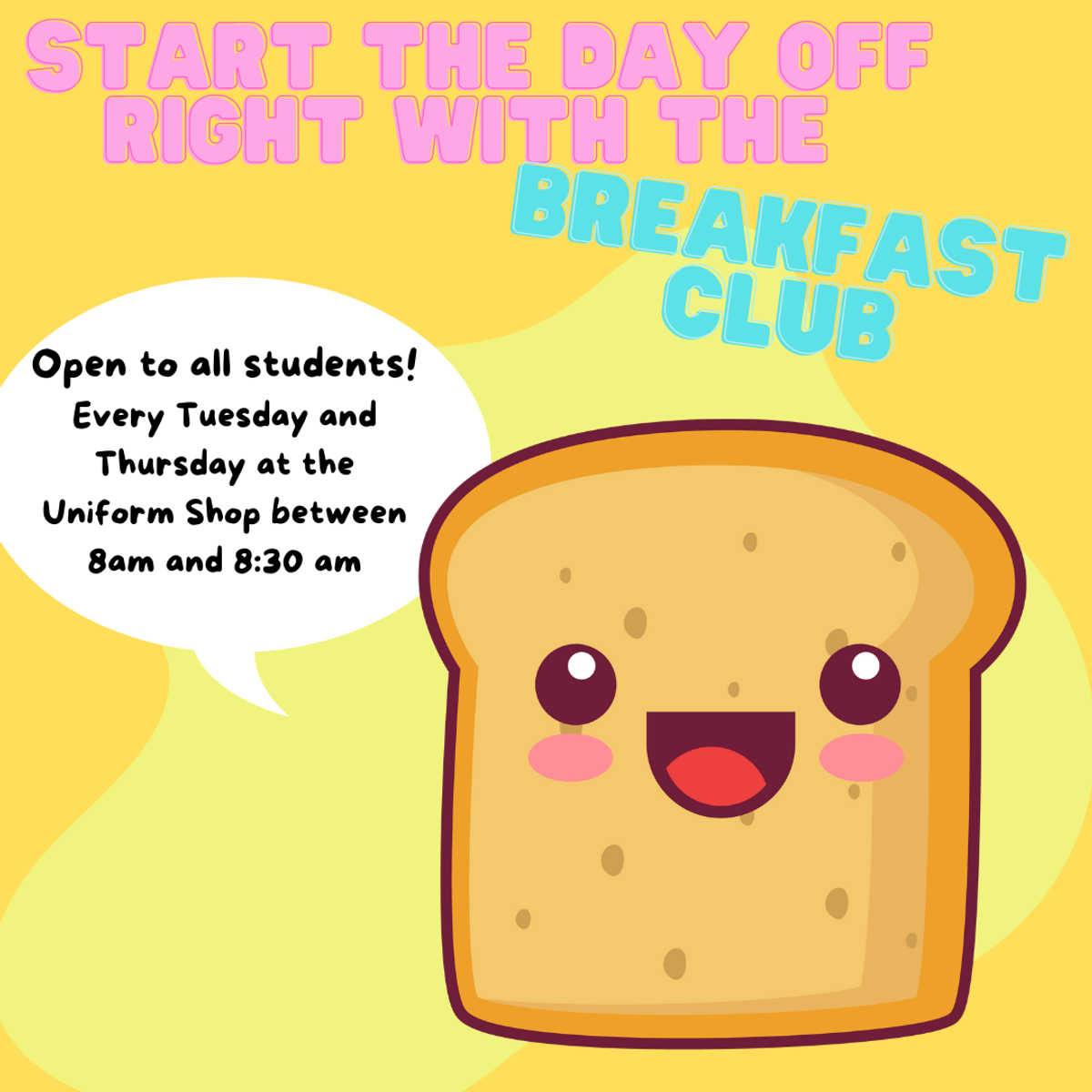

Breakfast Club is open to all students so please join us 8am - 8:30am Tuesdays and Thursdays in the Uniform Shop foyer, for some free healthy food to start your day!
Want to check in with Friends, but not sure how to? Click the pictures to learn about the “Check- -in App”:
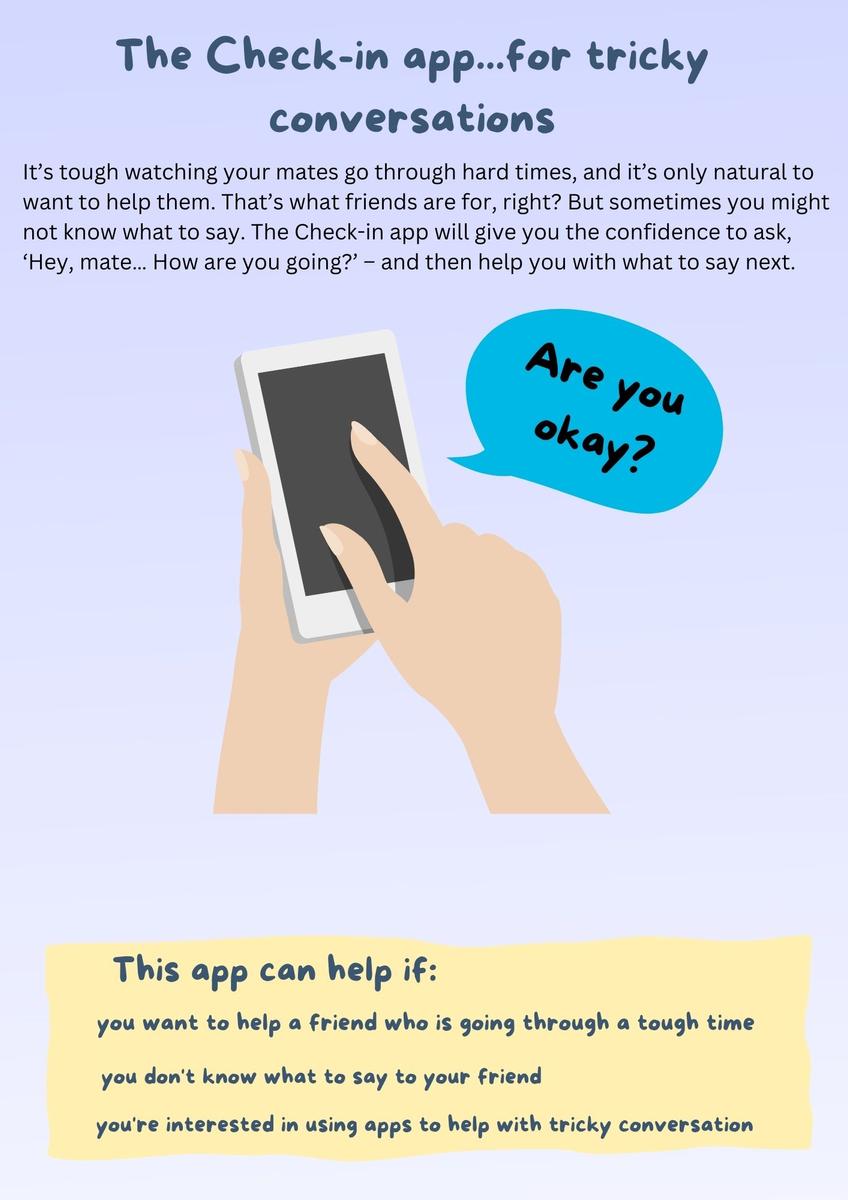
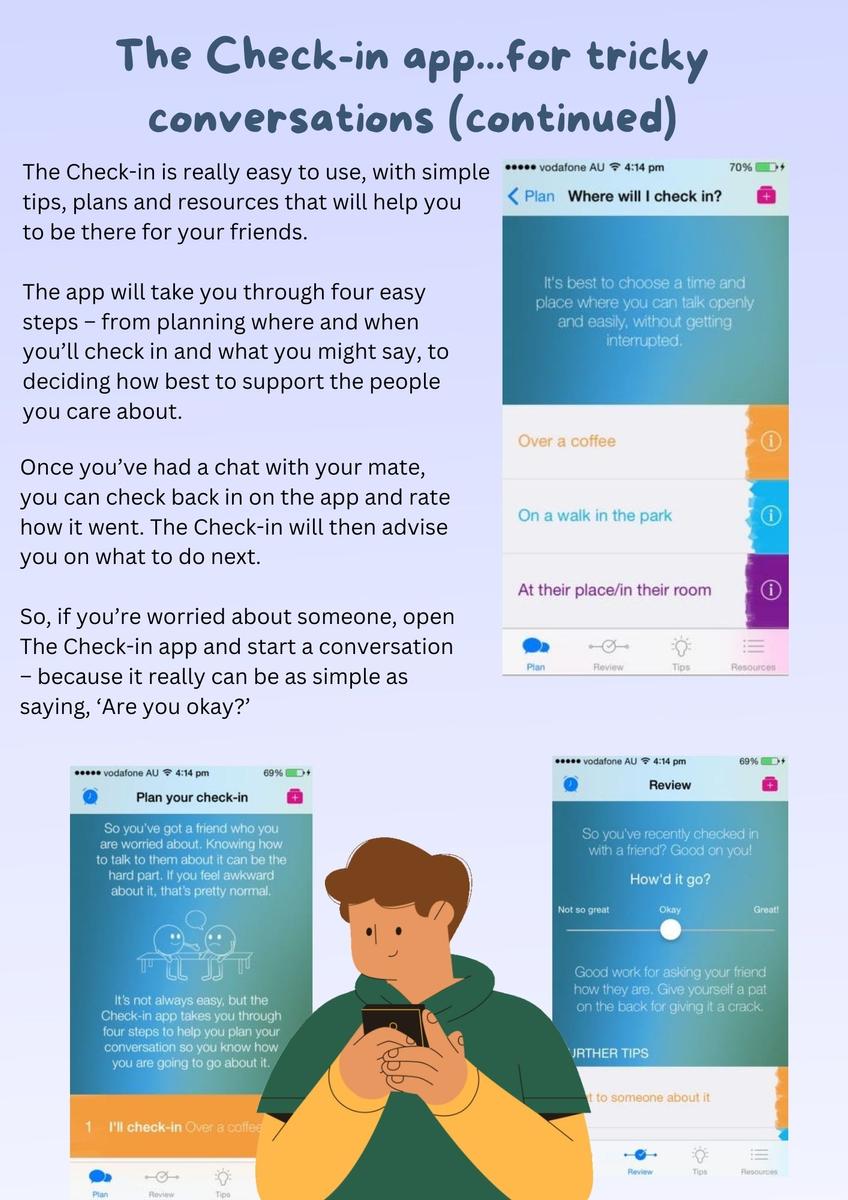


In general society, anger is often moralized – portrayed as a “bad” emotion – something only seen as destructive, dangerous or something to be ashamed of. We often talk about the negatives that come with this kind of anger – such as aggression.
Because of these negative portrayals of anger, it is quite common people come to therapy having learnt to suppress their anger (holding it in until it goes away), or to feel uncomfortable expressing their anger in healthy, assertive ways. Perhaps they might even turn that anger inward on themselves.
Feelings of shame or fear around anger might lead to suffering. Fears that anger might overwhelm them, or that they might lose control of themselves. Shame might arise due to feeling anger at all.
However, Anger is often a call to action – an emotion that comes forward to alert us to underlying needs that aren’t being met.
For example, feeling anger when your boundaries or values are not being respected.
Anger is also an emotion that works to cover underlying feelings that are painful. Common experiences include feeling sad, hopeless, anxious, unheard, or misunderstood.
The Gottman institute coined “the anger iceberg”, which is a great way to visualize how anger often sits atop other emotions:
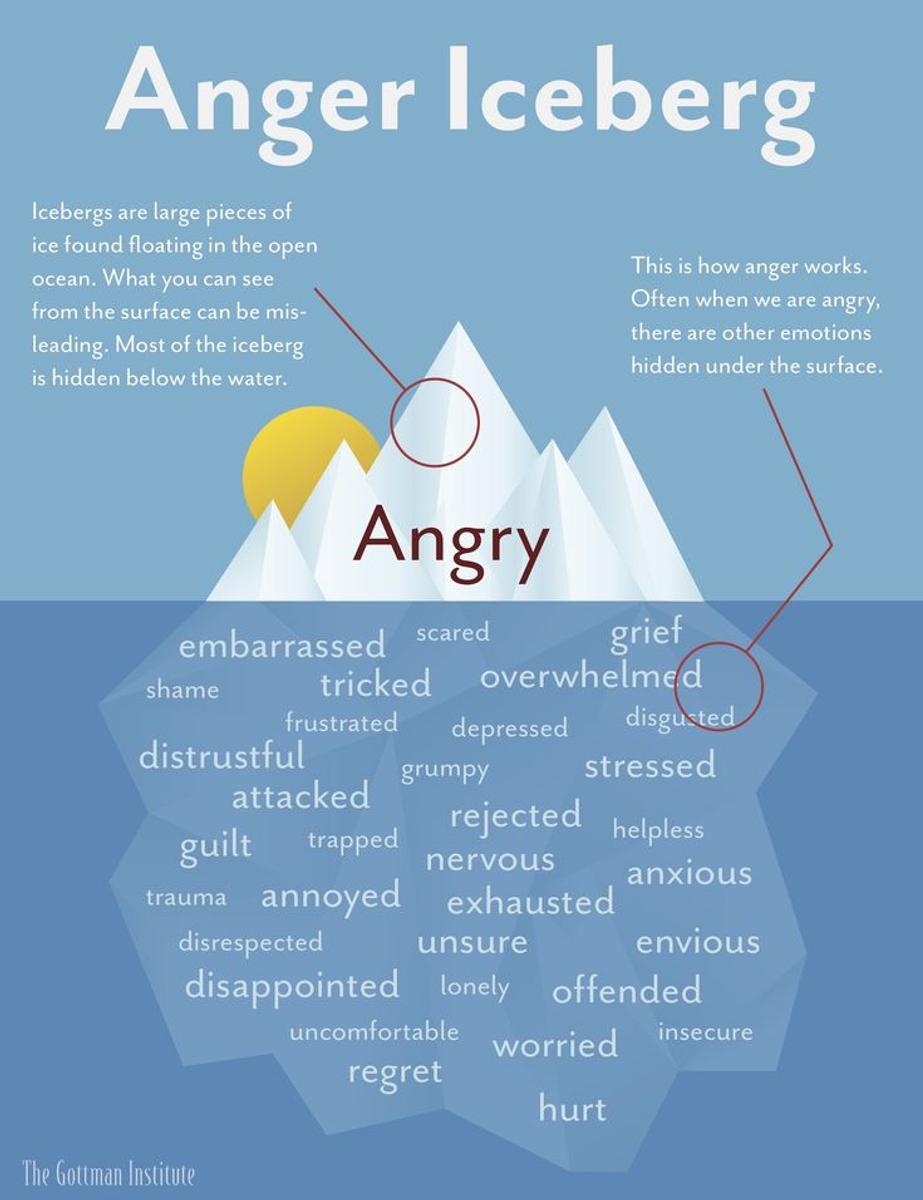

Think about what might be behind your anger.
By embracing our feelings of anger without shame, but instead with curiosity, we can work to find where it comes from. By understanding the validity of anger, it can free a person to begin to claim their worth and stop them from acting of their anger.
Anger often is simply an unheard statement: “That I am worthy, that my needs are important, that I deserve to voice this”.
As anger is explored, this encourages growth, self-reflection, and its intensity lessens. Looking for techniques for managing Anger? Check out this video:
The Wellbeing Team have compiled a range of resources and support services for students and families to access via Compass under Community (the two people) – School Documentation – For Students/For Parents – Wellbeing Resources.
headspace: visit headspace.org.au to find your nearest centre or call headspace on
1800 650 890.
Kids Helpline:
1800 55 1800 or kidshelpline.com.au
ReachOut: reachout.com.au
SANE Australia: 1800 187 263 or sane.org
National 24/7 crisis services
Lifeline:13 11 14 or lifeline.org.au
Suicide Call Back Service: 1300 659 467 or suicidecallbackservice.org.au
beyondblue:
1300 224 636 or beyondblue.org.au
Student Wellbeing Team
Email: wellbeing@wantirnacollege.vic.edu.au
Guiseppe Relia – Wellbeing Coordinator
Talea-Jane Simpson – School Counsellor
Lea Marrison - Mental Health Practitioner
Tajinder Wulff - Mental Health Practitioner